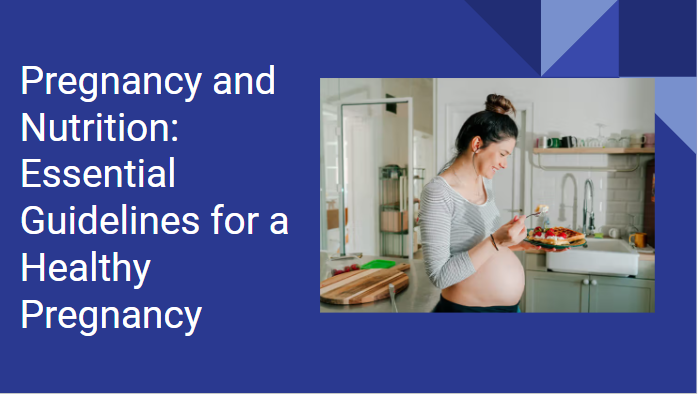Comparing CVS with Other Prenatal Testing Methods
Last Updated on September 7, 2023 by Lily
When it comes to prenatal testing, expectant parents have several options to consider. This topic provides a comprehensive comparison between CVS (Chorionic Villus Sampling) and other common prenatal testing methods, helping parents make informed decisions about their pregnancy.
Understanding Different Prenatal Testing Methods
1. CVS (Chorionic Villus Sampling)
- Procedure: Involves collecting a small sample of placental tissue for genetic testing.
- Timing: Typically performed between weeks 10 and 13 of pregnancy.
- Scope: Detects chromosomal abnormalities and genetic disorders.
- Accuracy: Highly accurate in diagnosing specific genetic conditions.
2. Amniocentesis
- Procedure: Involves extracting a small amount of amniotic fluid for genetic testing.
- Timing: Usually done between weeks 15 and 20 of pregnancy.
- Scope: Detects chromosomal abnormalities and neural tube defects.
- Accuracy: Highly accurate in diagnosing specific genetic conditions.
3. Non-Invasive Prenatal Testing (NIPT)
- Procedure: Involves a simple blood test to analyze fetal DNA in the mother’s blood.
- Timing: Can be done from week 10 of pregnancy onwards.
- Scope: Screens for chromosomal abnormalities, particularly Down syndrome.
- Accuracy: Very high accuracy rate, but it’s a screening test and not diagnostic.
4. First Trimester Screening
- Procedure: Combines a blood test and ultrasound to assess the risk of chromosomal abnormalities.
- Timing: Usually performed between weeks 10 and 13 of pregnancy.
- Scope: Screens for chromosomal abnormalities, particularly Down syndrome.
- Accuracy: Provides a likelihood score, but is not a definitive diagnosis.
5. Quad Screen (Second Trimester Screening)
- Procedure: A blood test that measures certain substances in the mother’s blood.
- Timing: Done between weeks 15 and 20 of pregnancy.
- Scope: Screens for chromosomal abnormalities and neural tube defects.
- Accuracy: Provides a likelihood score, but is not a definitive diagnosis.
Factors to Consider When Choosing a Prenatal Testing Method
1. Timing of Testing
- CVS: Can be performed earlier in pregnancy, between weeks 10 and 13.
- Amniocentesis: Typically done in the second trimester, between weeks 15 and 20.
- NIPT: Can be done as early as week 10.
- First Trimester Screening: Conducted between weeks 10 and 13.
- Quad Screen: Done in the second trimester, between weeks 15 and 20.
2. Risk Tolerance
- Some parents may prefer more definitive diagnostic tests like CVS or amniocentesis, while others may opt for less invasive screening methods like NIPT or first trimester screening.
3. Specific Conditions Being Screened For
- Consider which conditions are of primary concern to you. For example, if you are primarily concerned about chromosomal abnormalities, NIPT or CVS may be the focus.
4. Medical History and Risk Factors
- Your medical history, any previous pregnancies with genetic conditions, and your age can influence the choice of testing method.
Advantages and Disadvantages of CVS Compared to Other Methods
Advantages of CVS
- Early Detection: Can be performed earlier in pregnancy compared to some other tests.
- Highly Accurate: Provides definitive results for specific genetic conditions.
- Comprehensive: Can detect a wide range of chromosomal abnormalities and genetic disorders.
Disadvantages of CVS
- Invasive Procedure: Involves inserting a needle, which carries a small risk of complications.
- Cannot Detect Neural Tube Defects: Unlike tests like amniocentesis, CVS does not screen for neural tube defects.
Advantages of Other Methods
- Non-Invasive: Tests like NIPT and first trimester screening are non-invasive and carry no risk to the fetus.
- Screening for Neural Tube Defects: Tests like amniocentesis and quad screen can detect neural tube defects.
Disadvantages of Other Methods
- Timing: Some tests, like amniocentesis, are typically performed later in pregnancy.
- Screening, Not Diagnostic: Tests like NIPT and first trimester screening provide likelihood scores, but not definitive diagnoses.
FAQs
Can I choose not to undergo any prenatal testing?
Yes, the decision to undergo prenatal testing is entirely optional. It’s important to discuss your options with your healthcare provider and make a choice that aligns with your preferences and values.
Can I have multiple prenatal tests during my pregnancy?
Yes, it is possible to have multiple prenatal tests. Some parents opt for a combination of tests to gather comprehensive information about their baby’s health.
Are these tests covered by insurance?
Many prenatal tests, including CVS, amniocentesis, and certain screenings, are often covered by insurance. It’s advisable to check with your insurance provider for specific details regarding coverage.
Can I have both CVS and NIPT tests?
Yes, some expectant parents choose to have both CVS and NIPT tests. This combination provides comprehensive genetic information, with CVS offering diagnostic certainty and NIPT providing additional screening.
Are there situations where multiple tests are recommended?
In certain cases, healthcare providers may recommend a combination of tests, especially if there are specific concerns or risk factors identified during the pregnancy.
Can the results of one test influence the decision to have another?
Yes, the results of one test may influence the decision to have additional testing. For example, if a screening test indicates an increased risk, parents may opt for a more definitive diagnostic test like CVS or amniocentesis.
What if I’m unsure which test is right for me?
Your healthcare provider and genetic counselor can provide personalized guidance based on your medical history, preferences, and any specific concerns you may have.
Are there any risks associated with non-invasive prenatal testing (NIPT)?
NIPT is considered low-risk and does not pose any direct risk to the fetus. However, it’s important to note that NIPT is a screening test and not diagnostic. If results indicate a higher risk, further confirmatory testing may be recommended.
Can prenatal testing determine the sex of the baby?
Yes, prenatal testing methods like CVS and amniocentesis can determine the sex of the baby. NIPT can also provide information about fetal sex. However, some parents choose not to know until birth.
How long does it take to receive the results of prenatal tests?
The turnaround time for prenatal test results can vary. NIPT results are typically available within a week or two, while results for CVS and amniocentesis may take up to two weeks. Screening tests like first trimester and quad screen may provide results sooner.
Can I have prenatal testing if I’m expecting twins or multiples?
Yes, prenatal testing can be performed in pregnancies with multiple fetuses. However, it’s important to note that the procedures may be slightly more complex due to the presence of multiple gestations.
Can prenatal testing detect all possible genetic conditions?
While prenatal testing is comprehensive, it may not detect every possible genetic condition. It primarily focuses on specific chromosomal abnormalities and genetic markers associated with certain conditions.
Are there situations where prenatal testing may not be recommended?
In some cases, prenatal testing may not be recommended. This can include situations where the risks of the procedure outweigh the potential benefits, or if there are specific medical contraindications. Your healthcare provider will assess if testing is appropriate for your individual circumstances.
Can the results of prenatal testing be used for medical interventions during pregnancy?
Depending on the results, prenatal testing can provide valuable information for making decisions about the pregnancy. For example, if a genetic condition is detected, it may guide decisions about medical interventions, treatment plans, or specialized care.
Can I choose not to receive information about certain genetic conditions?
Yes, you have the right to specify which genetic conditions you want to be informed about. You can discuss your preferences with your healthcare provider and genetic counselor.
Can prenatal testing detect conditions that develop later in childhood?
Prenatal testing primarily focuses on genetic conditions present at the time of testing. It may not detect conditions that develop later in childhood. Routine pediatric screenings will assess for those conditions after birth.
Can I have prenatal testing if I have a history of miscarriages?
Yes, prenatal testing can still be an option if you have a history of miscarriages. It’s important to discuss your medical history with your healthcare provider, who can provide guidance based on your specific circumstances.



